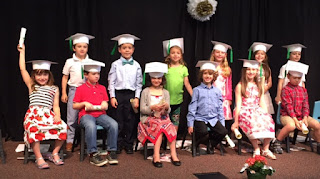Although the Montessori Method of learning requires a specifically prepared environment and a whole community of learners, there are key principles that can be carried over to the home.
Follow the child - Try to build on the interests that your child already has. Whether he is fascinated by dinosaurs or learning to climb the stairs, support and encourage those interests by providing safe and enriching opportunities to grow.
Give freedom to explore - Children learn best through exploration. The more opportunities they have to explore, the more they learn and develop. So let your toddler empty the Tupperware cupboard, take your preschooler on nature hikes, and allow your child to play, imagine, and create a world of their own in the backyard.
Emphasize practical life skills - As humans, we take great pride in our accomplishments. As children, those accomplishments include practical skills that were once challenging but with practice come with ease. Let your child help with dinner, sort laundry, and set the table. The pride they will feel will be well worth the extra time the tasks take to complete.
Provide child-sized tools - Imagine trying to cook using utensils that are two or three times larger that typical: too large for your hands, too long and hard to balance. In order to promote success, try to provide your child with tools that are the right size for them. This can include utensils, cups, broom and dustpan, laundry basket, anything that your child uses to complete her tasks.
Demonstrate how to do activities - Even the simplest tasks that we may take for granted often require explanations to our children when learning to do them. So, while completing tasks for and with your child, tell them what you are doing. For example, if your child needs help zipping their coat, talk them through the steps while you do it. Talk about how you look for the bottom of the zipper sides, how the two pieces slide together, check to see if the one side is all the way at the bottom, and how you hold down one side of the coat while you pull the zipper up. There are so many learning opportunities all around us!
Create an orderly environment - Rather that the traditional toy box with toys piled on top of toys, provide small shelves for your child to keep their things. Have a place for each item and let your child help with their arrangement. If there are too many toys to fit on the shelves, put some things up and rotate them out.
My son, Nathan (now 16 years old), in his bedroom at age 2




